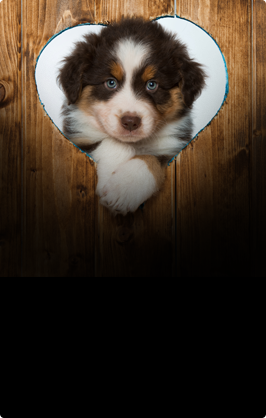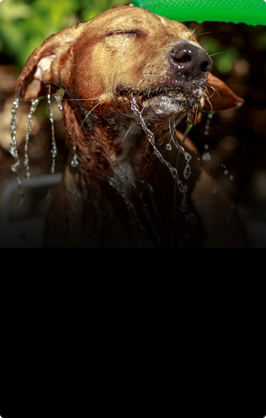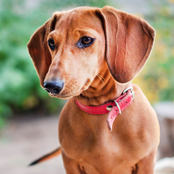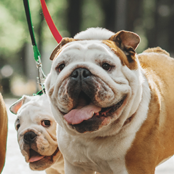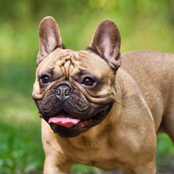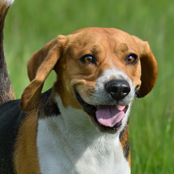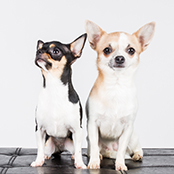The Pug
This wonderful breed is certainly a popular pooch
amongst dog lovers. Their lovable nature and hilarious
antics will have you quickly falling in love with this
adorable breed.
SEE OUR TRAINING SERVICES
Breed Profile
This wonderful breed is certainly a popular pooch amongst dog lovers. Their lovable nature and hilarious antics will have you quickly falling in love with this adorable breed.
Pug Facts and Information
Trainability
Bred primarily for companionship, the Pug thrives on human companionship. However, some have been known to be a wee bit stubborn when it comes to training. This is where your creativity and dedication is very important. They are naturally inquisitive dogs so persistence and enjoyment is vital for success. However, do not give up. Training is very important to keep your Pug safe and happy. Training needs to begin as soon as possible. So, plan ahead before you bring your bundle of fur home in regard to rules, regulations and manners around the home. Bad habits are much harder to out-train, so prevention is key. Positive reinforcement is the only way to train your pug (and any breed for that matter) so keep it happy and fun. They simply love to make their owner smile and will do anything for the right pet parent. They have been known to be difficult to house-train in some situations so researching crate training for this purpose is a good idea. But due to their smart natures once they learn something, they never forget! Some pugs are very food motivated while others are all about cuddles, so finding the right motivation to suit your dog is important.
Grooming
Pugs have a double coat that will require attention particularly during moulting season. Regular brushing is a must to help control shedding. It’s also a great way to check that your pugs coat is in good condition. Regular bathing is also required (on a monthly basis) or more often if your little friend has found something particularly smelly to roll in. The folds on your pug’s face does entail some attention to guarantee they do not become overloaded with nasty bacteria that can lead to infection. A gentle wipe with a wet cloth every few days will ensure they are kept healthy, also make sure you dry their folds after each bathing session. Wet wrinkles can lead to infections.
Exercise Requirements
Pugs don’t need endless amounts of exercise however, they are a very energetic and playful breed. But don’t have too much expectation when it comes to games like fetch. Like all dogs they will benefit from a daily walk and play session. This breed loves to eat, so ensuring they are kept at their correct weight is important to prevent future health problems. Keep feeding to the correct amounts and maintain daily exercise to keep your pup in tip-top condition. Being a companion breed they don’t like being left alone for long periods. Keeping up with boredom busting ideas and daily exercise will help.
Intelligence
Despite some believing this breed is not very smart, many owners will beg to differ. Pugs can be a challenge to train so understanding your dog’s own driving forces is important. Some will love food while others will love cuddles. They are a loyal loving breed that is super-playful making them one of the best companion dogs around. Socialisation from a young age is important, so enrol your beloved pug in a puppy-preschool class and consider group obedience training.
Family Friendly
Pugs are super family friendly and thrive in a busy household full of those who want to cuddle and play. This makes them a wonderful choice for families with children. However, like with all breeds ensure you teach your children how to correctly handle and play with a pug.
Indoor/ Outdoor
Pugs have been specially bred to be a companion and won’t be happy unless they have your complete devotion, and lap! Making them the ideal indoor dog. Due to their a short-noses the breed will struggle in the heat. Understanding this and adjusting their environment to suit is vitally important. If you suspect your pug is struggling in the heat, veterinary advice is recommended.
Breeding
It is very important to only source your new family member from a reputable breeding establishment, to ensure your puppy is healthy. Ask all the important questions about hereditary problems and ask to see mum and dad. Contact your local breed club and research your chosen breeder. Your breeder should have proof that they regularly test their dogs for genetic diseases and to ensure that the dogs they are breeding from have sound temperaments. It may take a little more time than a quick purchase, but it can save you and your family from unimaginable heartache and pain dealing with a sick puppy.
We love the Pug and provide the following
 Training
Training
 Grooming
Grooming
 Boarding
Boarding

